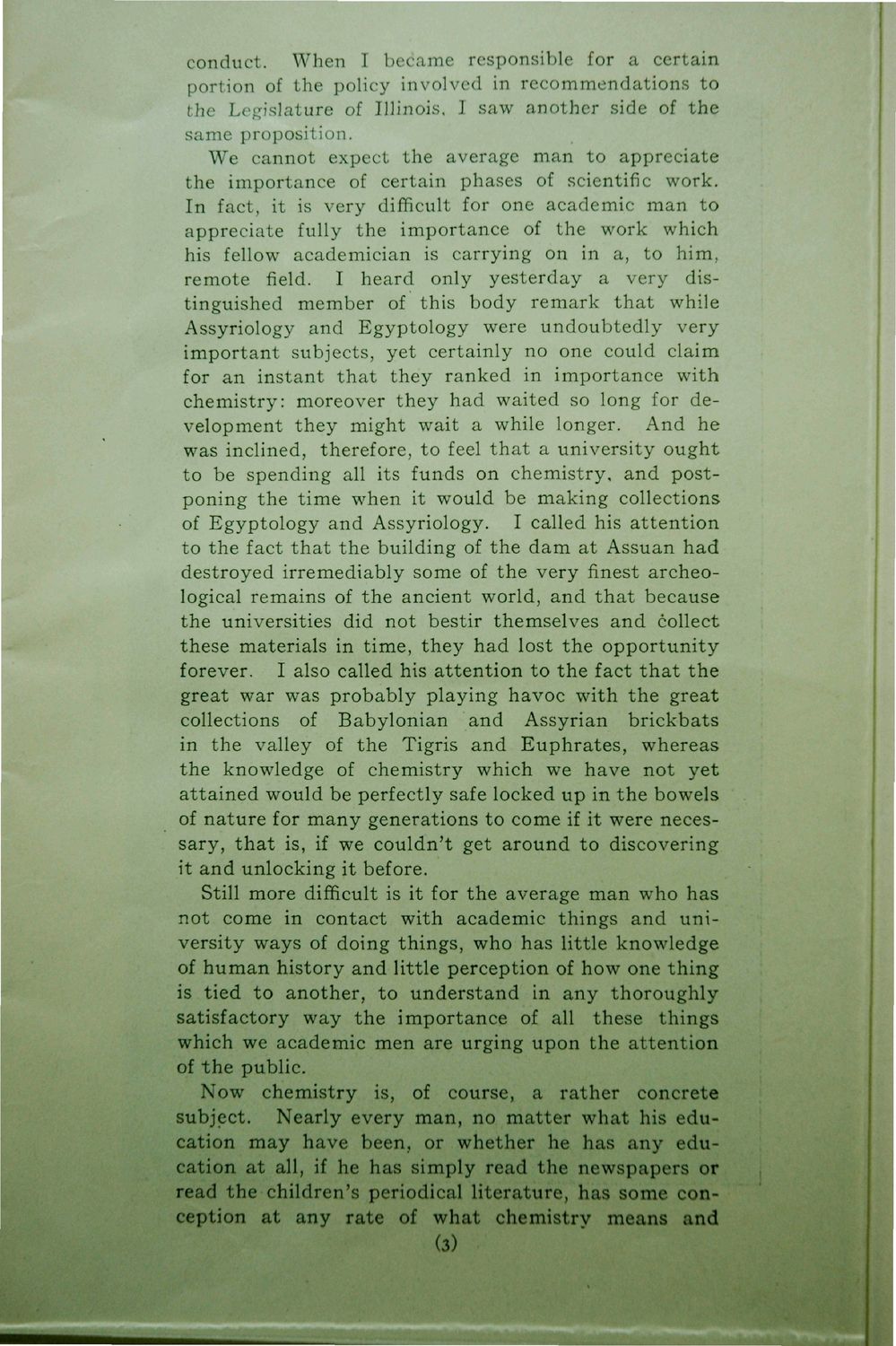| |
| |
Caption: Dedication - New Chemistry Building
This is a reduced-resolution page image for fast online browsing.

EXTRACTED TEXT FROM PAGE:
conduct. When I bedame responsible for a certain portion of the policy involved in recommendations to the Legislature of Illinois, I saw another side of the same proposition. We cannot expect the average man to appreciate the importance of certain phases of scientific work. In fact, it is very difficult for one academic man to appreciate fully the importance of the work which his fellow academician is carrying on in a, to him, remote field. I heard only yesterday a very distinguished member of this body remark that while Assyriology and Egyptology were undoubtedly very important subjects, yet certainly no one could claim for an instant that they ranked in importance with chemistry: moreover they had waited so long for development they might wait a while longer. And he was inclined, therefore, to feel that a university ought to be spending all its funds on chemistry, and postponing the time when it would be making collections of Egyptology and Assyriology. I called his attention to the fact that the building of the dam at Assuan had destroyed irremediably some of the very finest archeological remains of the ancient world, and that because the universities did not bestir themselves and collect these materials in time, they had lost the opportunity forever. I also called his attention to the fact that the great war was probably playing havoc with the great collections of Babylonian and Assyrian brickbats in the valley of the Tigris and Euphrates, whereas the knowledge of chemistry which we have not yet attained would be perfectly safe locked up in the bowels of nature for many generations to come if it were necessary, that is, if we couldn't get around to discovering it and unlocking it before. Still more difficult is it for the average man who has not come in contact with academic things and university ways of doing things, who has little knowledge of human history and little perception of how one thing is tied to another, to understand in any thoroughly satisfactory way the importance of all these things which we academic men are urging upon the attention of the public. Now chemistry is, of course, a rather concrete subject. Nearly every man, no matter what his education may have been, or whether he has any education at all, if he has simply read the newspapers or read the children's periodical literature, has some conception at any rate of what chemistry means and (3)
| |